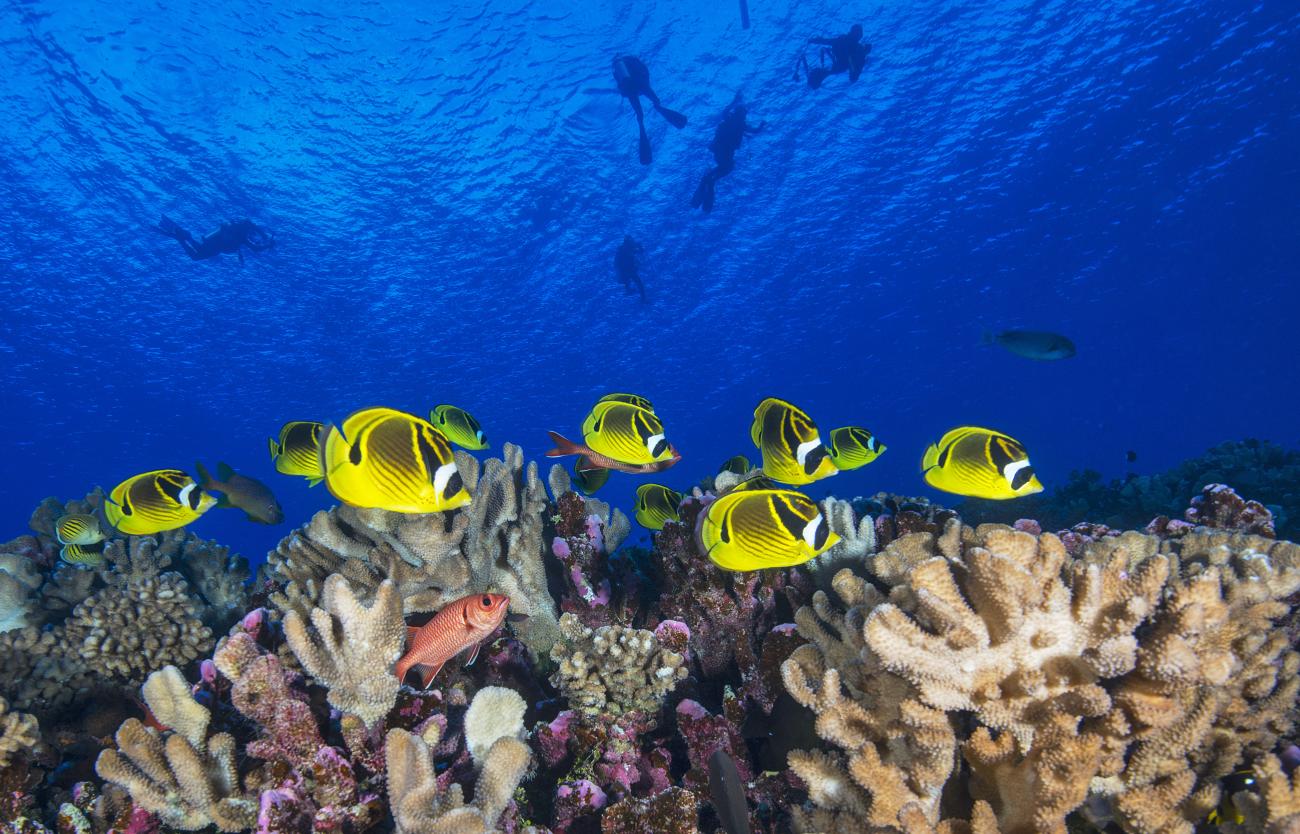Photo: Ocean Image Bank/Jayne Jenkins
Authors:
Christopher D. Golden1,2*†, Julien Ayroles3†, Jacob G. Eurich4,5†, Jessica A. Gephart6†, Katherine L. Seto7†, Michael K. Sharp8,9†, Prentiss Balcom10, Haley M. Barravecchia2, Keegan K. Bell4, Kelvin D. Gorospe6, Joy Kim11, William H. Koh1, Jessica Zamborain-Mason1, Douglas J. McCauley4, Helen Murdoch12, Nilendra Nair1, Kaaro Neeti12, Simone Passarelli1, Aaron Specht2, Elsie M. Sunderland10, Aritita Tekaieti13, Aranteiti Tekiau14, Rosemary Tekoaua12 and Eretii Timeon12
- 1Department of Nutrition, Harvard T.H. Chan School of Public Health, Boston, MA, United States
- 2Department of Environmental Health, Harvard T.H. Chan School of Public Health, Boston, MA, United States
- 3Department of Ecology & Evolutionary Biology, Princeton University, Princeton, NJ, United States
- 4Marine Sciences Institute, University of California, Santa Barbara, Santa Barbara, CA, United States
- 5Environmental Defense Fund, Santa Barbara, CA, United States
- 6Department of Environmental Science, American University, Washington, DC, United States
- 7Department of Environmental Studies, University of California, Santa Cruz, Santa Cruz, CA, United States
- 8Statistics for Development Division, Pacific Community, Noumea, New Caledonia
- 9Australian National Centre for Ocean Resources and Security, University of Wollongong, Wollongong, NSW, Australia
- 10School of Engineering and Applied Sciences, Harvard University, Cambridge, MA, United States
- 11BAO Systems, Washington, DC, United States
- 12Ministry of Health and Medical Services, Tarawa, Kiribati
- 13National Statistics Office, Ministry of Finance and Economic Development, Tarawa, Kiribati
- 14Ministry of Fisheries and Marine Resources Development, Tarawa, Kiribati
The Kiribati 2019 Integrated Household Income and Expenditure Survey (Integrated HIES) embeds novel ecological and human health research into an ongoing social and economic survey infrastructure implemented by the Pacific Community in partnership with national governments. This study seeks to describe the health status of a large, nationally representative sample of a geographically and socially diverse I-Kiribati population through multiple clinical measurements and detailed socio-economic surveys, while also conducting supporting food systems research on ecological, social, and institutional drivers of change. The specific hypotheses within this research relate to access to seafood and the potential nutritional and health benefits of these foods. We conducted this research in 21 of the 23 inhabited islands of Kiribati, excluding the two inhabited islands—Kanton Islands in the Phoenix Islands group with a population of 41 persons (2020 census) and Banaba Island in the Gilbert Islands group with a population of 333 persons (2020 census)—and focusing exclusively on the remaining islands in the Gilbert and Line Islands groups. Within this sample, we focused our intensive human health and ecological research in 10 of the 21 selected islands to examine the relationship between ecological conditions, resource governance, food system dynamics, and dietary patterns. Ultimately, this research has created a baseline for future Integrated HIES assessments to simultaneously monitor change in ecological, social, economic, and human health conditions and how they co-vary over time.
Read more on Frontiers in Public Health website.
